321 stainless steel
321 stainless steel forgings are critical for high-temperature and corrosive environments, combining titanium stabilization, oxidation resistance, and mechanical durability. Their compliance with stringent international standards ensures reliability in aerospace, energy, and chemical industries.
Descriptions
1. Chemical Composition
The titanium content in 321 stainless steel (≥5×C% by weight) stabilizes the alloy against sensitization. Below is the detailed chemical composition:
| Element | Composition (%) |
| Carbon (C) | ≤0.08 |
| Manganese (Mn) | ≤2.00 |
| Silicon (Si) | ≤0.75 |
| Phosphorus (P) | ≤0.045 |
| Sulfur (S) | ≤0.030 |
| Chromium (Cr) | 17.00-19.00 |
| Nickel (Ni) | 9.00-12.00 |
| Titanium (Ti) | ≥5xC%(min.0.30%) |
| Iron (Fe) | Balance |
2. Mechanical Properties
321 stainless steel forgings exhibit excellent mechanical properties at both room temperature and elevated temperatures. Typical values in the annealed condition are:
| Property | Value |
| Tensile Strength | 515 MPa(75,000 psi) |
| Yield Strength(0.2% offset) | 205 MPa (30,000 psi) |
| Elongation (50 mm gauge) | 40% |
| Hardness (Brinell) | ≤187HB |
| Modulus of Elasticity | 193 GPa (28 x10⁶ psi) |
| Density | 7.9 g/cm³(0.285 1b/in³) |
| Melting Range | 1400-1425°C(2552-2597°F) |
3. Common Forging Product
Forged Flanges
Forged Valves
Forged Pipe Fittings
Forged Shafts
Forged Turbine Blades
4. Industry standards
Standard | Scope |
ASTM A182/A182M | Forged fittings, flanges, and valves. |
ASTM A473 | Stainless steel forgings (general). |
ASME SA182/SA182M | ASME Boiler and Pressure Vessel Code. |
EN 10088-3 | Technical delivery conditions for bars, rods, and wire. |
AMS 5510 | Aerospace-grade sheet, strip, and plate. |
GB/T 1220 (China) | Stainless steel bars (Chinese standard). |
Recent products
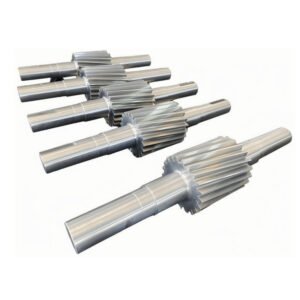
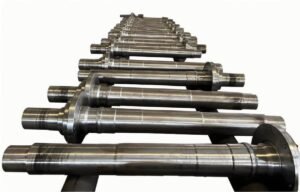
Quill Forging For Top Drive System
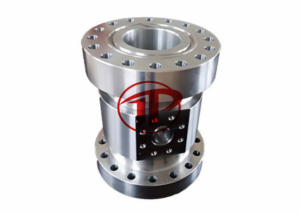
API 6A 4130 4140 Casing Head Forging
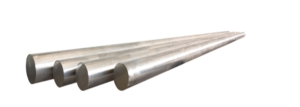
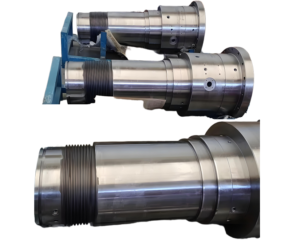
Top Drive Inner Barrel
CONTACT US
Applications
Jet engine components (combustors, afterburners). Exhaust systems and heat shields.
Exhaust manifolds and catalytic converter housings.
Boiler components, superheater tubes, and turbine parts.

